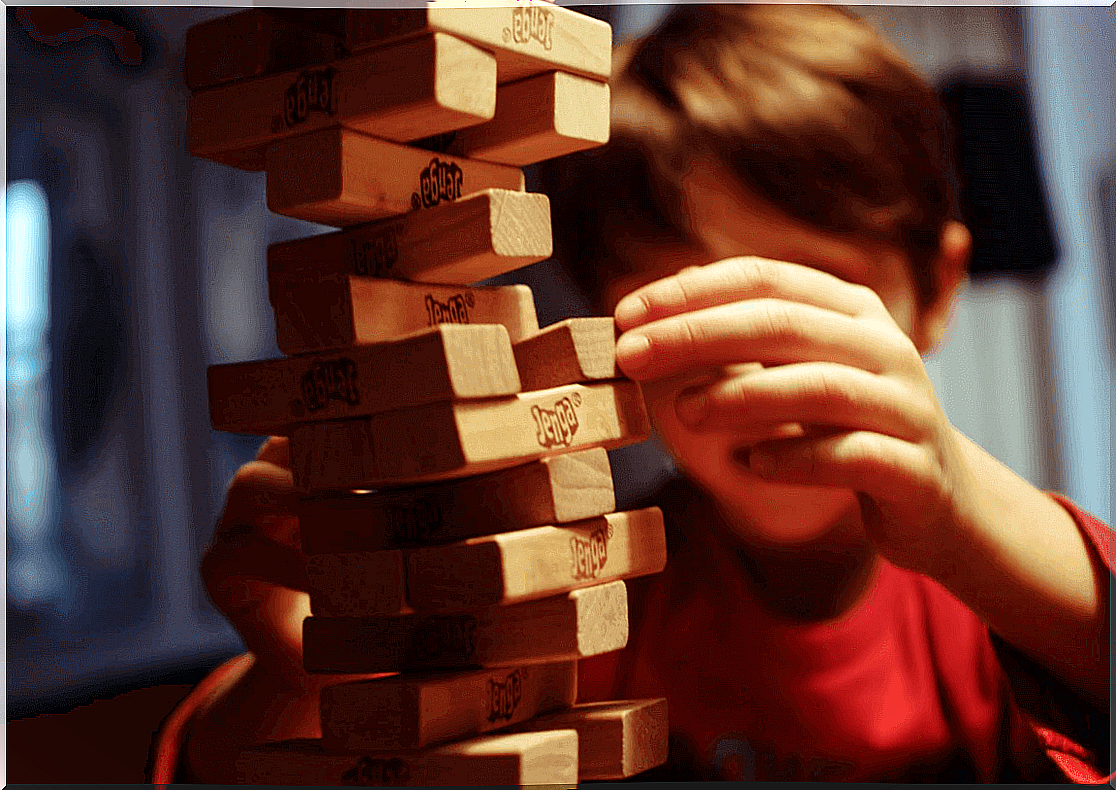Learning Disabilities: Taking Care Of Your Child’s Emotional Health

We know more and more about the different learning problems that can arise at school. As society progressed, the need to adapt the content and mode of teaching to children who have this type of difficulty gained importance.
Thus, support figures were inserted in schools. Now they often have specialists, both in therapeutic pedagogy and in hearing and language. However, despite all this progress, in general, another fundamental aspect in these children’s lives is often neglected: their emotional health and the care they need in this area. Now the question is, what can we do to support them and not make them feel stigmatized?
What can children with learning problems feel?
When a child has learning problems, it is common that, associated with these difficulties, he suffers from emotional issues. Thus, feelings of frustration, sadness or anxiety may appear. Of course, we must not forget that these emotional problems also occur in children who do not have difficulties in their academic performance.
How can parents detect if their children are having problems? There are several signs that can serve as an alert. On the one hand, emotions such as those mentioned above may arise, especially in relation to school situations. They can be manifested by screaming, worrying, headaches, upset stomach and behavioral problems.

Having learning problems doesn’t mean being less intelligent.
These feelings can show up for a variety of reasons. One is that children with learning problems often think they are “dumb” than others. It’s very important for parents to work out these kinds of beliefs, because they’re wrong.
On the one hand, parents must explain, clearly and adapted to the child’s level of development, what the learning difficulties are. In this sense, it must be very clear to the child that they are not related to higher or lower intelligence. In addition, they need to get the message that their learning difficulties don’t make them less valuable or that people around them will love them less.
This is very important. If children perceive that their parents feel bad about this diagnosis, they will have the feeling that there is something not right about them. Therefore, fathers and mothers will have to take the reins and transmit a positive attitude to their children.

Am I different because I have learning problems?
When we are older, we understand that everyone is what they are and that there are what we know in psychology as “individual differences”. But when we are little, what we want is to be like the other children around us. At least, if we are different, let this difference not harm us. Therefore, it is good to intervene and help children to understand the origin and consequences of what they perceive as different in themselves.
To help them in this regard, it is important that children also receive attention when they get it right, not just when they make mistakes related to their learning problems. In this sense, an inertia can be generated, fed with all our good intentions. That is, we highlight failures so that children improve at the expense of their successes. Therefore, it is necessary to make an effort to reverse this inertia, if it has already been created. That way, we can reinforce behavior when they do the right things.
Finally, we must also assess whether the support and curriculum adaptations the child receives are adequate. It may be necessary to readjust them taking into account the emotional and social difficulties that arise. Furthermore, it is important to work together with parents and teachers to achieve greater child well-being.

So much effort is wearing me out: the overload of children with learning problems
It should not be forgotten that, in general, children with learning problems need to devote more time and effort to classroom tasks. This extra concentration can lead to frustration and anger. Therefore, it is very important to work on this aspect.
As a result, it will be more motivating and fruitful for them to work around smaller, easier-to-achieve goals. In this way, the child will see that he is making progress, rather than seeing an unclimbable mountain in front of him. This simple step is critical.
And finally, there’s another element that will help you dramatically improve your emotional well-being: finding something you’re good at. That is, some activity or sport that children enjoy and in which they feel fulfilled. Having learning problems can affect them emotionally, but it’s in our hands to help them feel better.
Images courtesy of Ben White, Michal Parzuchowski and Element 5 Digital.









